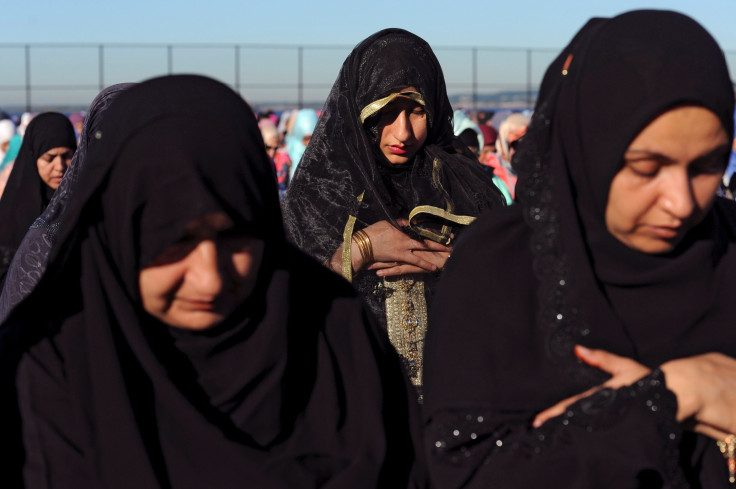Muslims In Egypt Want To Ban Burqas: Face Veil Not Part Of Islam, Lawmaker Says

An Egyptian lawmaker is calling on the Egyptian parliament to ban niqabs and burqas because she claims full face veils are not a requirement of Islam and actually hail from Jewish tradition. Amina Nasir, who is also a Islamic philosophy professor at the prestigious Al-Azhar University in Cairo, said the Quran calls for Muslim women to cover their hair but not their face, according to media reports Thursday.
Egypt, a majority Muslim nation, has seen heated debate over women's clothing in public in recent months. The Egyptian parliament debated a ban on full face veils in public places and government buildings in March and Cairo University banned lecturers from wearing the niqab earlier this year because the veils reportedly led to “poor communication” during lectures. In Egypt's October election, women will now be required to remove their niqabs to vote.
Women in Egypt traditionally appear in public with some kind of head covering, but full face veils are rare. Egyptian lawmaker Atif Makhalif, a member of the parliament’s human rights commission, has said the debate on face veils limits women's rights.
“Everyone has the right to wear what they want, whether it’s a niqab or a mini-skirt,” Makhalif told the Sada al-Balad news site. “It doesn’t go against Egypt’s national security.”
But Nasir said she is concerned about national security. She said it is possible that men seeking to commit crimes could wear niqabs in public to conceal their identity.
Amid recent terror attacks carried out by Islamic State supporters across the Middle East, United States and Europe, Western leaders have also debated this year whether to ban full face veils in public. A poll earlier this month found one in four French Muslims support women having the right to wear burqas, which conceals the whole face, and the niqab, which features an eye slit.
"The burqa and the niqab are not only diametrically opposed to our understanding of the equality of man and woman and open communication, in court, they complicate understanding of the truth and the enforcement of material justice," said Bavarian Justice Minister Winfried Bausback, a member of the Christian Social Union, during a debate Wednesday on banning face veils from the courtroom in Germany.
© Copyright IBTimes 2025. All rights reserved.






















